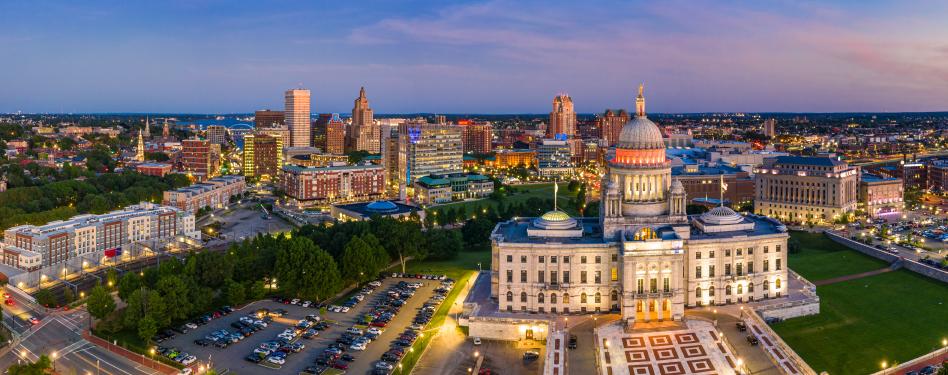
Rhode Island's governor, Daniel McKee, signed H-7278 Sub A/S-2700 Sub A into law, enacting substantial improvements to the Green Buildings Act, a landmark piece of legislation first adopted in 2009.
The legislation expands the requirement that public projects meet a LEED, LEED for Neighborhood Development and/or SITES certification to include public buildings, public structures and public real property of cities and local governments. The original law applied to state projects, state agencies and “political subdivisions thereof.”
The amendments build on 2017 amendments that included a pilot program of SITES and LEED for Neighborhood Development as applicable standards for the sustainable development of public real property, which made Rhode Island the first state to incorporate LEED for Neighborhood Development and SITES into statewide public policy. SITES-certified projects create regenerative systems that not only help reduce water consumption, energy needs and air pollution, but that also better bear catastrophic flooding events and sea level rise.
The legislation explicitly identifies the Green Buildings Act as a strategic tool for achieving the objectives and targets of Rhode Island’s 2021 Act on Climate—legislation that sets mandatory, enforceable emissions reduction goals to achieve net zero emissions economywide by 2050—and of the work of the Executive Climate Change Coordinating Council.
The Green Buildings Act's importance
Architect and USGBC Rhode Island chair and co-founder Kenneth J. Filarski, LEED Fellow, drafted the bill.
“The 2022 Green Buildings Act (GBA) is significant: for its making history in 2009, 2017 and 2022; [for] building on Rhode Island's being the first state in the nation to adopt LEED, LEED for Neighborhood Development and SITES into public law; and now for its timeliness to support and implement our Act on Climate statutory initiatives at this critical time in our ecology," said Filarski. "The GBA directly addresses climate change and greenhouse gas emission reductions, holistically leveraging and integrating the ecosystem services we can provide, completing the continuum of resilience and sustainability in our buildings, structures and landscapes.”
The legislation expands the makeup, purpose and obligations of the state’s Green Building Advisory Committee. The committee is now tasked with establishing goals and targets, monitoring ongoing greenhouse gas (GHG) savings, improvement, issuing an annual report and making further recommendations.
“Rhode Island has been a leader as the first state with a Green Buildings Act. As Rhode Island implements the requirements of the Act on Climate, it is important for the state to lead by example. The updated act will ensure that state and local buildings will make the most of taxpayer construction dollars by requiring that all buildings over 10,000 square feet be LEED-certified,” says Rep. Terri Cortvriend, the bill’s lead sponsor in the House. “This will result in post-construction benefits like lower utility costs and a healthier environment for employees, which leads to better employee retention.”
The amendments will go into effect in 2023.
